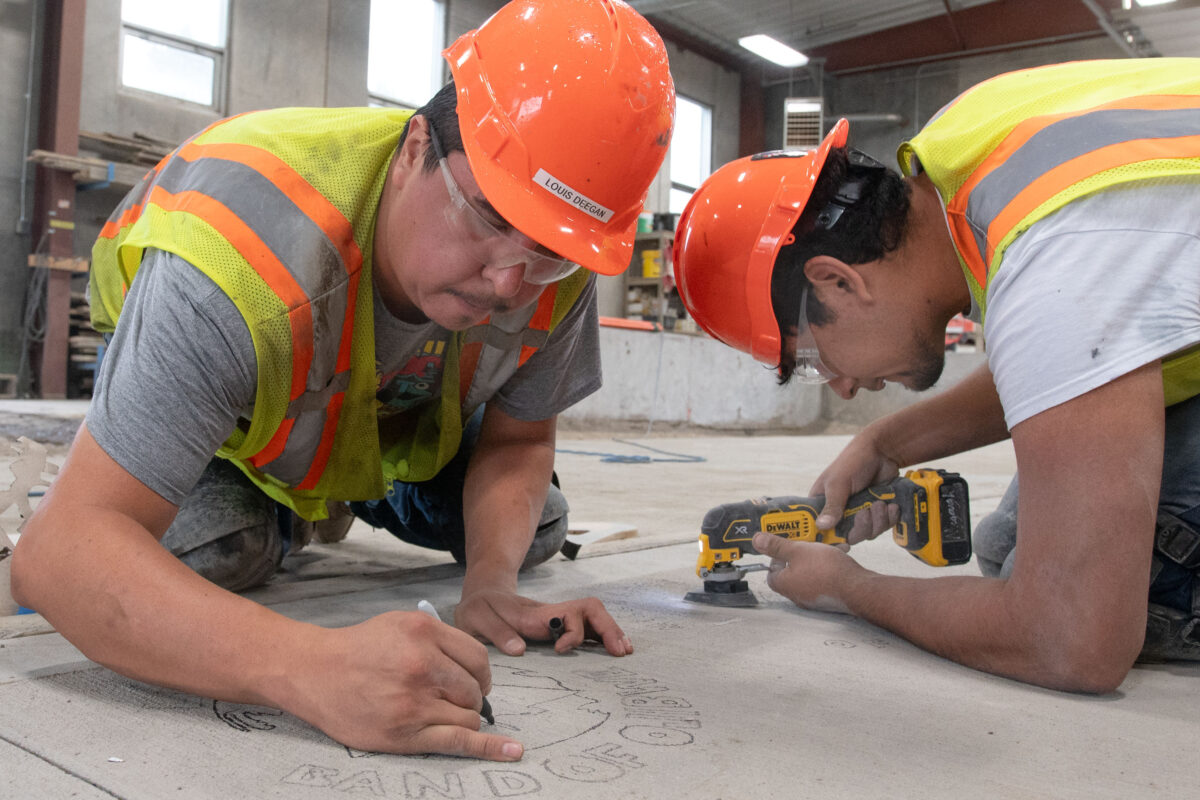It was early April when Moke Eaglefeathers, the Apprenticeship Coordinator for Local 633 Cement Masons, got in his pickup truck and drives to Northern Minnesota to recruit for a summer camp like no other – a ten week pre-apprenticeship program just for young people from Minnesota’s Native American reservations. The program that prepares them for a career in a union construction trade. Growing up as a member of the Northern Cheyenne band in Montana, the “res” is not foreign territory to Eaglefeathers. He is familiar with the challenges facing those who live there and desires to give them an opportunity for a career.
To that end, Eaglefeathers’s pitch is no-nonsense. The expectations are high for his camp. “There’s no other program like it in the state of Minnesota,” he said. “If they get kicked out or quit after the first week, they have to pay the money back. There’s a lot of incentive in it.”
The goal of the program is to make its participants get into a union trade and are immediately employable. The thoroughness of the program makes that possible. Participants get an immediate feel for real world job conditions. Training begins at 7 a.m. every day, Monday through Friday, and ends at 3:30 p.m. The course is split with about 80% of time for hands on training and the remaining 20% in the classroom. Subjects covered run the gamut from construction math, safety training to actually doing different types of cement pours.
As with any sort of teaching or coaching, some students pick things up quickly whereas others have the potential but need more work. Eaglefeathers describes their teaching as a “lot of two-step dancing.” It’s often two steps forward and one step back just so they can see what the students may be missing and address those issues.
In an effort to ensure a good student/teacher ratio, three instructors teach at the camp. One of them is Marissa Goodsky, named the 2022 Journeyworker of the Year by the Women Building Success Foundation. She grew up on the Bois Forte Band of Chippewa Reservation near Orr, Minn. Goodsky said there can be some culture shock for kids coming from life on the reservation. She has firsthand knowledge that what may pass “on the res” won’t pass on a construction job site. Before they ever make it to a site, those who don’t get it are weeded out. Eighteen students started out the program this summer but nine will finish.
“We didn’t eliminate them,” said Eaglefeathers. “They eliminated themselves. If you are late getting here or if you are late returning from lunch, you are done. If we let them get away with it here, what are we teaching them? If we send them out to contractors that way, they are going to wonder what good are we doing here?”
Graduation rate isn’t the metric used here to quantify success. It’s the retention rate – what percentage of them are on the job a year later. Are they able to do the job, become an apprentice and stay employed? To that end, the program has a 80-90% job placement and retention rate according to Local 633.
Charles Ikola, from the Leech Lake Band of Ojibewe, graduated from Deer River High School on June 2. He decided to skip the college route and join his brother who completed the training last year and now works in the Twin Cities. “It’s not just a job,” Ikola said. “It’s a career and it can take you a long way.”
###




